NEW ORLEANS, U.S.: Losing two or more teeth in middle age is associated with increased cardiovascular disease risk, according to preliminary research. The findings were presented at the American Heart Association’s 2018 Epidemiology and Prevention Lifestyle and Cardiometabolic Health Scientific Sessions, a premier global exchange of the latest advances in population-based cardiovascular science for researchers and clinicians.
In a collaborative research effort between the Tulane University School of Public Health and Tropical Medicine in New Orleans and Harvard T.H. Chan School of Public Health in Boston, U.S., a team of researchers analyzed the impact of tooth loss in two large studies of adults. In the studies, the participants, aged 45–69 years, were asked to report on the numbers of natural teeth they had, then in a follow-up questionnaire, report on any recent cases of tooth loss. The adults in this analysis did not have cardiovascular disease when the studies began. The researchers prospectively studied the occurrence of tooth loss during an eight-year period and followed an incidence of cardiovascular disease among people with no tooth loss, one tooth lost and two or more teeth lost over 12–18 years.
It was found that, among the adults with 25–32 natural teeth at the respective study’s start, those who lost two or more teeth had a 23 percent increased risk of cardiovascular disease, compared with those with no tooth loss. The increased risk occurred regardless of reported diet quality, physical activity, body weight and other cardiovascular risk factors, such as high blood pressure, high cholesterol and diabetes. There was not a notable increase in cardiovascular disease risk among those who reported losing one tooth during the respective study period. Cardiovascular disease risk among all the participants (regardless of the number of natural teeth at the respective study’s start) increased 16 percent among those who lost two or more teeth during the respective study period, compared with those who did not lose any teeth. Adults with less than 17 natural teeth, compared with 25–32 at the respective study’s start, were 25 percent more likely to have cardiovascular disease.
Study author and Professor of Epidemiology at Tulane University Dr. Lu Qi added: “Previous research has also found that dental health issues are associated with elevated risk of cardiovascular disease. However, most of that research looked at cumulative tooth loss over a lifetime, which often includes teeth lost in childhood due to cavities, trauma and orthodontics. Tooth loss in middle age is more likely related to inflammation, but it hasn’t been clear how this later-in-life tooth loss might influence cardiovascular disease risk.”
“In addition to other established associations between dental health and risk of disease, our findings suggest that middle-aged adults who have lost two or more teeth in the recent past could be at increased risk for cardiovascular disease. That’s regardless of the number of natural teeth a person has as a middle-aged adult, or whether they have traditional risk factors for cardiovascular disease, such as poor diet or high blood pressure,” Qi said.
The findings have not yet been published as a peer-reviewed paper. The abstract, titled “Changes in dental health and coronary heart disease risk: Two prospective cohort studies in men and women,” was published in the Circulation journal on March 20, 2018.
AMSTERDAM, Netherlands: In recent years, increasing attention has been given to aspects of oral health in patients with rheumatoid arthritis (RA), ...
MILAN, Italy: Since the evidence of oral manifestations linked to SARS-CoV-2 is scarce, researchers have recently set out to fill the gap by investigating ...
SAN FRANCISCO, U.S.: Smoking remains a leading cause of oral cancer, and the tobacco product range is evolving with increasing use of non-cigarette tobacco ...
NEW YORK, U.S.: Many people enjoy a drink, and now researchers from the New York University (NYU) School of Medicine have identified that alcohol ...
Vitamin D is a steroid hormone that is obtained through diet or synthesised in the skin from cholesterol when the skin receives adequate sun exposure (the ...
PHILADELPHIA, U.S.: Some young children experience severe dental caries that resists normal therapies. According to a recent study carried out by ...
MADISON, Wis., U.S.: Various studies have previously suggested that there is a link between poor oral health and the occurrence of inflammatory diseases, ...
TEL AVIV, Israel: Since digital technology is so deeply rooted in our society, it would be hard to imagine a world without the internet. Whereas smartphones...
With the findings from earlier studies being controversial, and the only two systematic reviews ever conducted being inconclusive, this topic was a big ...
NANCHANG, China: Social media adverts for whitening products show celebrities flaunting their pearly whites, putting pressure on consumers to conform to the...
Live webinar
Tue. 24 February 2026
11:30 pm IST (New Delhi)
Prof. Dr. Markus B. Hürzeler
Live webinar
Wed. 25 February 2026
1:30 am IST (New Delhi)
Prof. Dr. Marcel A. Wainwright DDS, PhD
Live webinar
Wed. 25 February 2026
9:30 pm IST (New Delhi)
Prof. Dr. Daniel Edelhoff
Live webinar
Wed. 25 February 2026
11:30 pm IST (New Delhi)
Live webinar
Thu. 26 February 2026
6:30 am IST (New Delhi)
Live webinar
Tue. 3 March 2026
9:30 pm IST (New Delhi)
Dr. Omar Lugo Cirujano Maxilofacial
Live webinar
Wed. 4 March 2026
6:30 am IST (New Delhi)
Dr. Vasiliki Maseli DDS, MS, EdM



 Austria / Österreich
Austria / Österreich
 Bosnia and Herzegovina / Босна и Херцеговина
Bosnia and Herzegovina / Босна и Херцеговина
 Bulgaria / България
Bulgaria / България
 Croatia / Hrvatska
Croatia / Hrvatska
 Czech Republic & Slovakia / Česká republika & Slovensko
Czech Republic & Slovakia / Česká republika & Slovensko
 France / France
France / France
 Germany / Deutschland
Germany / Deutschland
 Greece / ΕΛΛΑΔΑ
Greece / ΕΛΛΑΔΑ
 Hungary / Hungary
Hungary / Hungary
 Italy / Italia
Italy / Italia
 Netherlands / Nederland
Netherlands / Nederland
 Nordic / Nordic
Nordic / Nordic
 Poland / Polska
Poland / Polska
 Portugal / Portugal
Portugal / Portugal
 Romania & Moldova / România & Moldova
Romania & Moldova / România & Moldova
 Slovenia / Slovenija
Slovenia / Slovenija
 Serbia & Montenegro / Србија и Црна Гора
Serbia & Montenegro / Србија и Црна Гора
 Spain / España
Spain / España
 Switzerland / Schweiz
Switzerland / Schweiz
 Turkey / Türkiye
Turkey / Türkiye
 UK & Ireland / UK & Ireland
UK & Ireland / UK & Ireland
 International / International
International / International
 Brazil / Brasil
Brazil / Brasil
 Canada / Canada
Canada / Canada
 Latin America / Latinoamérica
Latin America / Latinoamérica
 USA / USA
USA / USA
 China / 中国
China / 中国
 Pakistan / Pākistān
Pakistan / Pākistān
 Vietnam / Việt Nam
Vietnam / Việt Nam
 ASEAN / ASEAN
ASEAN / ASEAN
 Israel / מְדִינַת יִשְׂרָאֵל
Israel / מְדִינַת יִשְׂרָאֵל
 Algeria, Morocco & Tunisia / الجزائر والمغرب وتونس
Algeria, Morocco & Tunisia / الجزائر والمغرب وتونس
 Middle East / Middle East
Middle East / Middle East
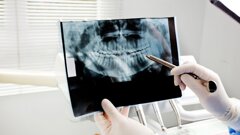

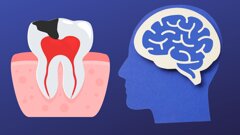
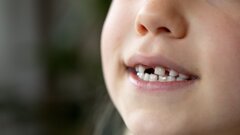



























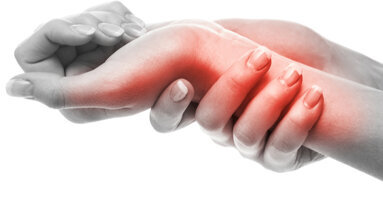

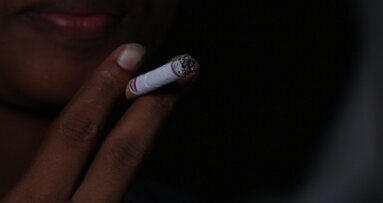






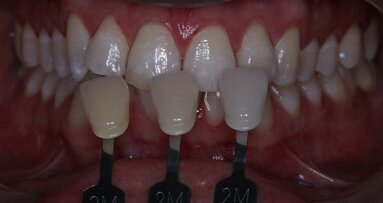
















To post a reply please login or register